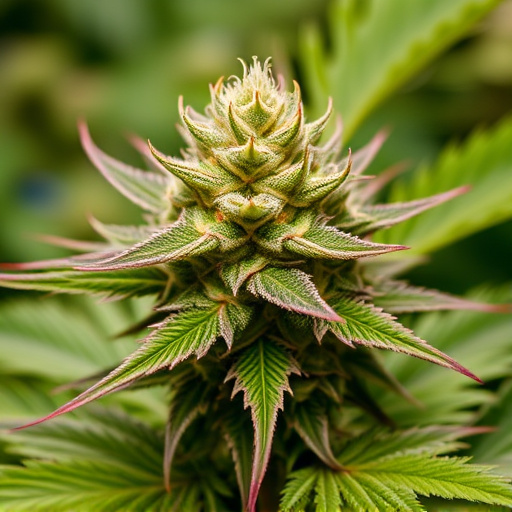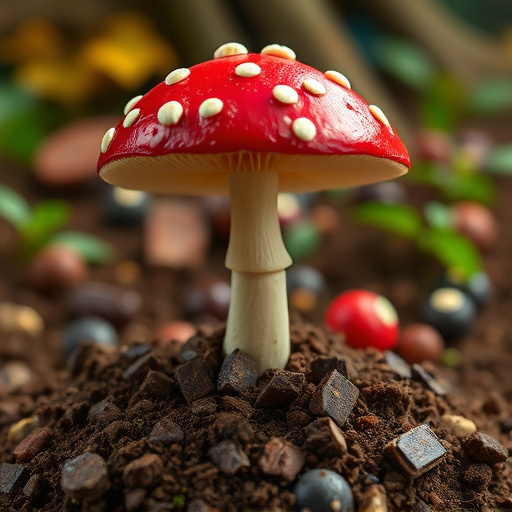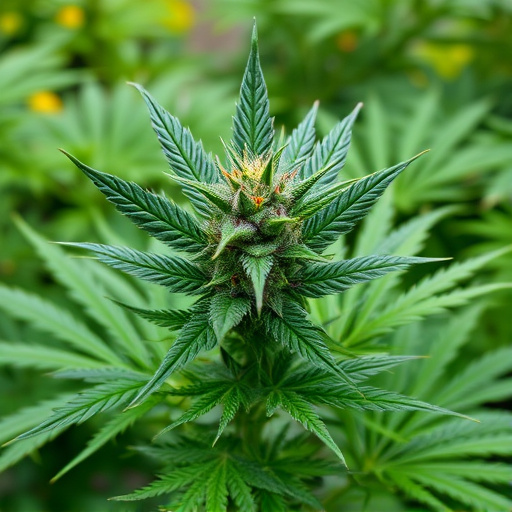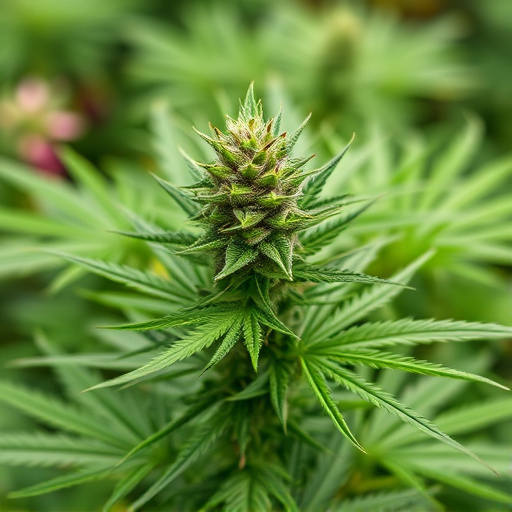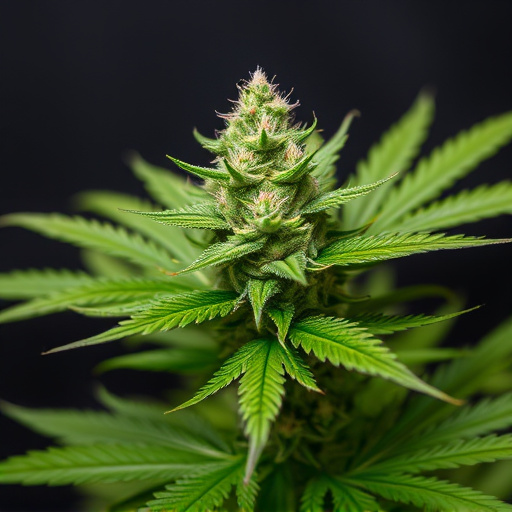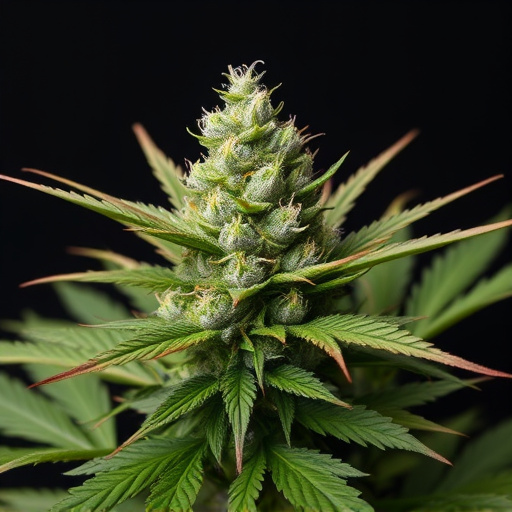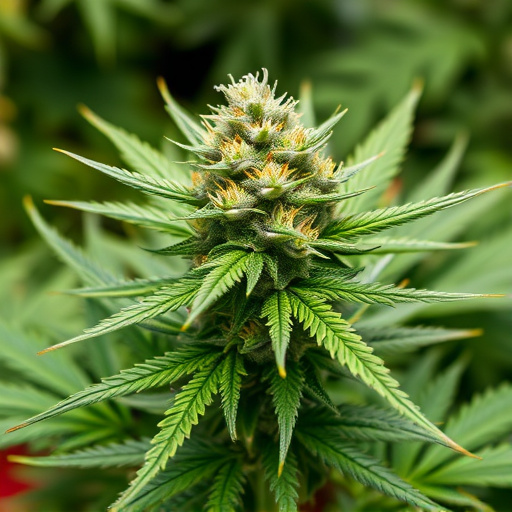Medicinal cannabis strains offer a diverse range of therapeutic benefits due to their unique cannabinoid and terpene profiles. CBD-rich strains are popular for anxiety and anti-inflammation, while THC-rich varieties provide pain relief and euphoria. The endocannabinoid system interacts with these compounds to regulate mood, making personalized dosing crucial for optimal therapeutic outcomes. Healthcare professionals guide patients in selecting the right medicinal cannabis strains tailored to their specific needs, ensuring safe and effective treatment.
Cannabis flowers, rich in diverse cannabinoids and terpenes, exert complex effects on mood and emotions. This article delves into the intricate relationship between these natural compounds and human psychology. We explore how different medicinal cannabis strains can influence emotional states, highlighting the potential benefits for managing conditions like anxiety and depression. Understanding individual variations ensures personalized treatment approaches, empowering users to harness the therapeutic potential of medicinal cannabis strains effectively.
- Understanding the Cannabis Flower and Its Chemical Composition
- The Impact of Medicinal Cannabis Strains on Mood and Emotions
- Individual Differences and Personalized Treatment with Cannabis
Understanding the Cannabis Flower and Its Chemical Composition
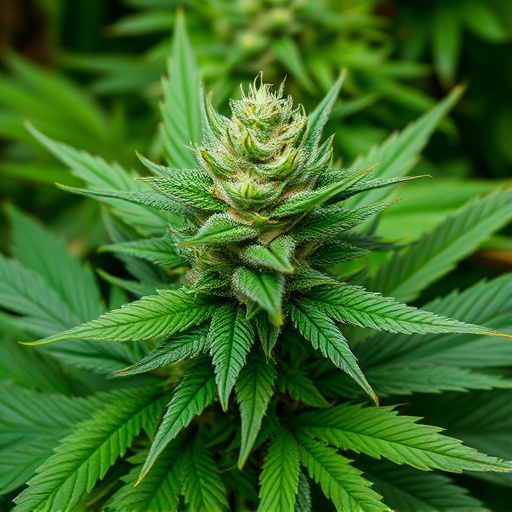
The cannabis flower, a complex botanical wonder, is more than meets the eye. At its core, it’s a powerhouse of chemicals known as cannabinoids and terpenes, which play a crucial role in its diverse effects on mood and emotions. Cannabinoids, such as tetrahydrocannabinol (THC) and cannabidiol (CBD), interact with our endocannabinoid system, influencing neurotransmitters that regulate mood, appetite, memory, and perception of pain.
Medicial cannabis strains are cultivated to optimize these chemical profiles for specific therapeutic benefits. For example, higher CBD strains are often sought for their potential anxiety-reducing and anti-inflammatory properties, while THC-rich varieties may induce euphoria and alleviate chronic pain. Terpenes, aromatic compounds responsible for the unique scents of different cannabis strains, also contribute to its mood-altering effects through their own interactions with the brain. Understanding these intricate relationships is key to navigating the complex world of medicinal cannabis and unlocking its potential therapeutic benefits.
The Impact of Medicinal Cannabis Strains on Mood and Emotions
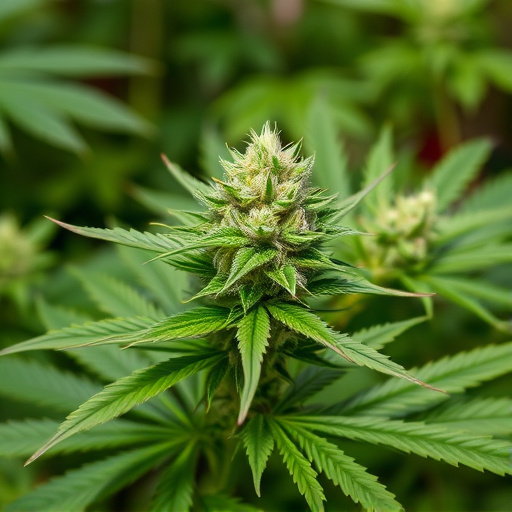
Medicinal cannabis strains have been shown to have a profound impact on mood and emotions, offering potential therapeutic benefits for individuals dealing with various mental health conditions. These strains are carefully cultivated to contain specific ratios of cannabinoids, such as THC (tetrahydrocannabinol) and CBD (cannabidiol), which play a crucial role in modulating brain activity associated with mood regulation. Research suggests that certain medicinal cannabis strains can induce feelings of calmness, reduce anxiety, and even alleviate symptoms of depression in some users.
The effects are often attributed to the way these cannabinoids interact with the endocannabinoid system (ECS) present in every human body. By binding to receptors within this system, they can influence neurotransmitters that control mood, appetite, and pain perception. For instance, CBD has gained significant attention for its potential anti-anxiety and anti-depressant properties without inducing psychoactive effects, making it a popular choice for those seeking mood support without the high associated with THC.
Individual Differences and Personalized Treatment with Cannabis
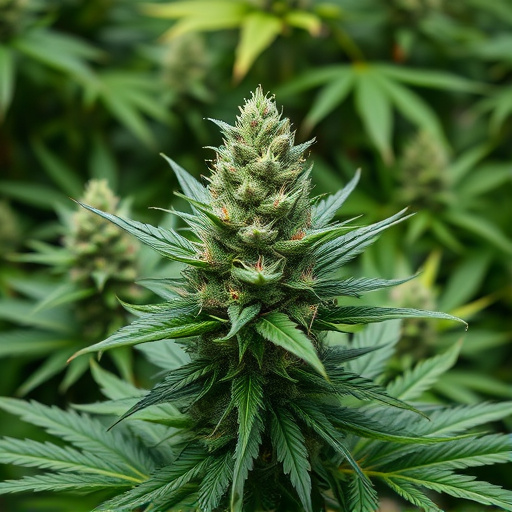
Cannabis flower’s impact on mood and emotions can vary greatly from person to person, emphasizing the importance of individual differences in personalized treatment approaches. What works for one individual might not have the same effect on another, largely due to genetic predispositions, past experiences, and unique neurochemical profiles. These factors influence how our brains interact with cannabis compounds, particularly THC and CBD, resulting in diverse responses, from euphoria and relaxation to anxiety or paranoia.
Personalized treatment with medicinal cannabis strains involves tailoring dosages and specific cannabinoid profiles to align with individual needs. Considering the vast array of cannabis cultivars available, each with unique terpene profiles and cannabinoid ratios, precise dosing becomes crucial. Healthcare professionals play a pivotal role in guiding patients through this process, helping them navigate the complex landscape of medicinal cannabis to achieve optimal therapeutic benefits while minimizing adverse effects.
In conclusion, medicinal cannabis strains have been shown to significantly impact mood and emotions due to their unique chemical composition. Understanding these effects allows for personalized treatment approaches, recognizing that individual differences play a crucial role in how each person interacts with cannabis. As research continues to evolve, the potential of medicinal cannabis strains to enhance well-being and provide relief remains a promising area of exploration.



